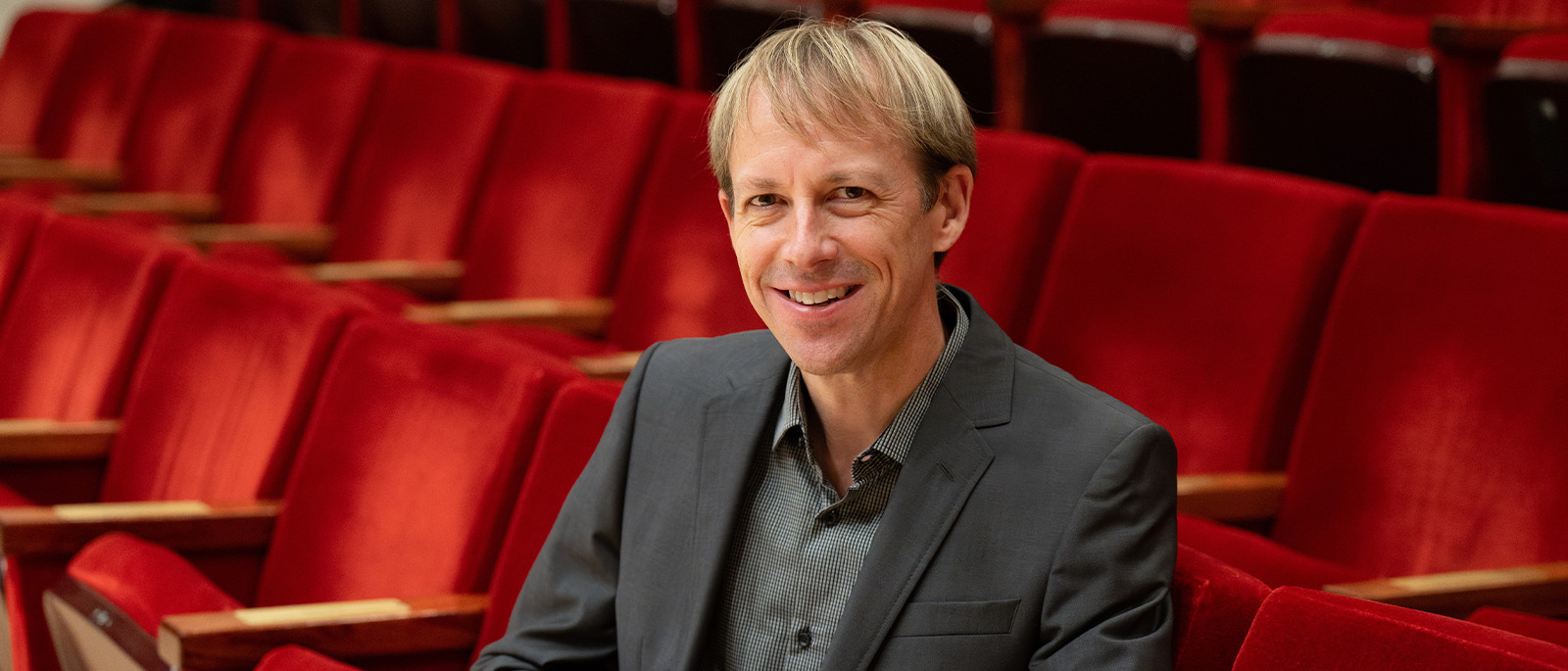
Preaching to the Choir
Tilman Michael takes the reins of the mighty Met Chorus this season, leading the best ensemble in the business into a new era after the retirement of Donald Palumbo. The German maestro arrives—with wife and four children in tow—after a ten-year tenure at the Frankfurt Opera, where he developed the chorus into an award-winning group. Soon after his arrival in New York, the new C. Graham Berwind, III Chorus Director spoke with the Met’s Jay Goodwin about his path to Lincoln Center and his enduring love for his craft.
How did you end up dedicating your life to choral direction?
I’m from Stuttgart in the south of Germany, which they say is “the city with 1,000 choruses.” I don’t know if anyone has actually counted, but every single little town in the area has a chorus. And my father played oboe in the Stuttgart Radio Symphony Orchestra, so I grew up in a musician's family. I started to play the cello when I was seven, and then the piano, and then began singing at ten. When I was 14, I joined a very active boys’ choir, and we did 50 concerts a year and went on performance tours abroad. That changed my life. I knew from my father that it was a wonderful job to make great music every day, and by the time I went to university, I had fallen in love with choral singing, and I knew I would be a choral conductor.
You come to us after a decade at the Frankfurt Opera. What are you most proud of from your time there?
I am proud that the chorus is now a really top ensemble that is able to sing everything—from Baroque opera like Handel’s Hercules and Purcell’s Dido and Aeneas, to Wagner’s Die Meistersinger von Nürnberg and Parsifal, to contemporary work. They have great quality of sound and flexibility of sound, and they are great actors on stage.
What was your experience with the Met before our search for a new choral director?
It’s hard to believe, but this year marked my first visit to the U.S. I’ve traveled with various choruses all over the world—throughout Europe, all through South America, Hong Kong, Taiwan, and Jerusalem. In 2001, I was singing with Helmuth Rilling’s Bach-Collegium Stuttgart, and we were scheduled to perform in Washington, D.C., that October, but it was canceled after 9/11. And somehow I hadn’t ever made it to the States. But of course anyone working in opera is aware of what the Met is doing.
Tilman Michael in rehearsal with the Met Chorus
I understand that part of the process was that you came last spring to lead some chorus rehearsals.
Yes, but before that, [Met Director of Music Administration] Thomas Lausmann came to Frankfurt to hear my chorus. This is not how it is done very often, but I think it should be. Afterward, we talked, and the Met invited me to come for a few days to meet with everyone and take part in two days of rehearsals. So I worked with the chorus on Kevin Puts’s The Hours, Offenbach’s Les Contes d’Hoffmann, and Puccini’s La Rondine. It was great—a really good atmosphere, I loved how the chorus responded to me, and we made some nice music together. It was very promising.
What is your goal for the sound of the Met Chorus?
Beauty of sound—and for me that means a rich sound, warm and very blended—is the start of everything, and is the bait to draw people in, but it’s not the ultimate goal. This is opera, so we need to have a wide range of character and of emotion, and we need to be very flexible with how we sing. In the end, it’s about expression.
Being chorus director at a place like the Met is a grueling, all-consuming job. What drives you?
I’ve been doing this for 22 years, and I still love it every single day. I love to rehearse and to create music with these great choruses, and each day, I am confronted with new questions about the music, about the composers, about singing, about story, about the people in front of me, and about myself. I love that challenge.